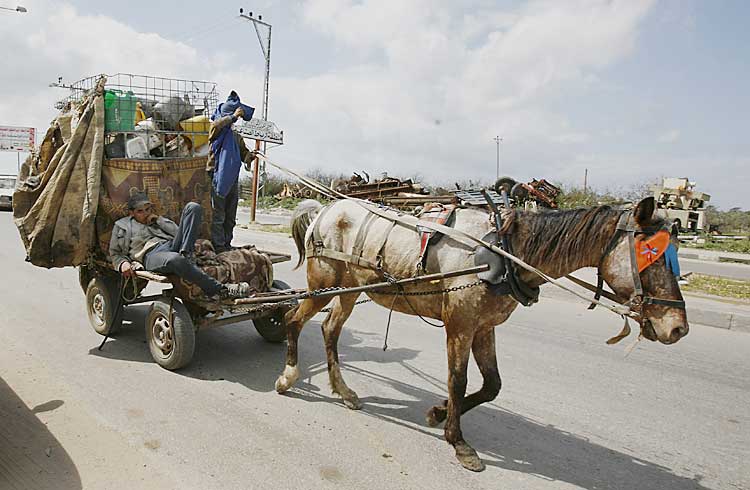Conditions in Gaza 'the worst since 1967'

Your support helps us to tell the story
From reproductive rights to climate change to Big Tech, The Independent is on the ground when the story is developing. Whether it's investigating the financials of Elon Musk's pro-Trump PAC or producing our latest documentary, 'The A Word', which shines a light on the American women fighting for reproductive rights, we know how important it is to parse out the facts from the messaging.
At such a critical moment in US history, we need reporters on the ground. Your donation allows us to keep sending journalists to speak to both sides of the story.
The Independent is trusted by Americans across the entire political spectrum. And unlike many other quality news outlets, we choose not to lock Americans out of our reporting and analysis with paywalls. We believe quality journalism should be available to everyone, paid for by those who can afford it.
Your support makes all the difference.The British Government should end its boycott of Hamas and work to lift a crippling blockade of Gaza which has left humanitarian conditions at their worst level for 40 years, the top UK charities say today.
The call on Britain to spearhead a radical change of EU policy by promoting reconciliation between Hamas and Fatah comes in a stark report that describes the Gaza Strip overwhelmed by steeply rising poverty, power cuts of up to 12 hours a day, and water and sewage systems close to collapse.
The report condemns rocket attacks on Israel but warns that the "failing" international policy of isolating Hamas has not "reaped any benefits". Instead both the UK Government and the EU should begin a "political dialogue with all Palestinian parties" as a first step towards the establishment of a "credible" peace process with Israel involving both the West Bank and Gaza.
The report was published as the Palestinian President, Mahmoud Abbas, yesterday bowed to US pressure and current international policy by agreeing to resume his negotiations with Israel only hours after warning that he would not do so until there was a ceasefire between Israel and Hamas in Gaza.
The agencies, including Oxfam, Amnesty International, Save the Children UK, Care International UK and Christian Aid, say that last weekend's "upsurge in violence and human misery" in which more than 100 Palestinians were killed in Israeli military operations against rocket attacks "underlines the urgency of this report". They call for pressure on Israel to reopen the Gaza crossings.
The report says that with 80 per cent of families in Gaza are currently dependent on food aid humanitarian conditions in Gaza are now worse than "at any time since the beginning of the Israeli occupation in 1967".
With unemployment set to rise to 50 per cent, 95 per cent of Gaza's industrial operations have halted because of the closures of Gaza crossings. It says that between 40 million and 50 million litres of untreated sewage continue to pour into the Mediterranean daily because of a lack of fuel for treatment plants and warns of a current "60-70 per cent" shortage of diesel required for hospital power generators.
It quotes World Health Organisation estimates that the proportion of patients given permits to leave Gaza for medical treatment has fallen from 89 per cent in January 2007 to an "unprecedented low" of 64.3 per cent in December 2007 and that 20 per cent of patients, including five children, have died while waiting for permits. Christian Aid's director, Daleep Mukarji, said yesterday: "The UK Government should acknowledge that a new strategy is needed for Gaza. The current policy does not secure vital security for Israeli citizens, and even if it did the blockade policy would still be unacceptable and illegal."
He added: "Humanitarian aid can help stave off total collapse but it will not provide a long-term solution. Gaza cannot become a partner for peace unless Israel, Fatah and the Quartet engage with Hamas and give the people of Gaza a future."
Mr Abbas's U-turn came as the US Secretary of State, Condoleeza Rice, wound up her mission to the region by saying that the US brokered negotiations – which deliberately exclude Hamas – would resume and that while the Palestinian President would like to see an end to the violence in Gaza, "this is not a condition".
As 10 Qassam rockets landed in open areas in Israel yesterday, the Israeli security cabinet backed further military operations after last weekend's incursion – in which Israeli and Palestinian human rights groups estimate that more than half the deaths were of civilians.
Mr Abbas's espousal of two diametrically opposite policies in a single day appeared to reflect a deepening conflict between the goal of satisfying the demands of the international community and pursuing negotiations on the outlines of a future two-state solution, which show little sign of making progress.
The Israeli religious party Shas, which at present occupies a pivotal role in Israeli Prime minister's Ehud Olmert's coalition, has threatened to walk out if the "core issue" of Jerusalem – essential to any future negotiated deal – is discussed in the talks.
Join our commenting forum
Join thought-provoking conversations, follow other Independent readers and see their replies
Comments